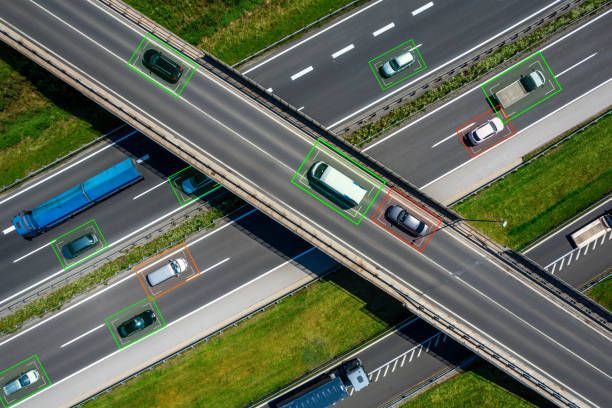Summary
Personally, I have little concern about who is keeping me under surveillance. I am critical of our economic and social systems, but I maintain an honest and forthright approach to my livelihood, guided by family, Christian values, and consistency. I am also giving to those who request my help, to a degree, unless the help becomes a form of exploitation.
Introduction: The Illusion of Privacy
In 2025, the phrase “Big Brother is watching” feels less like dystopian fiction and more like a quiet reality. From smartphones in our pockets to cameras on street corners, Americans live in an era where data is currency—and surveillance is an integral part of infrastructure. What began as targeted intelligence gathering after 9/11 has evolved into a sprawling ecosystem of government programs, corporate data markets, and AI-driven analytics. The result? A society where privacy is no longer the default—it’s a privilege, and your personal data is at stake.
The Legal Backbone: Section 702 and Beyond
At the heart of America’s surveillance architecture lies Section 702 of the Foreign Intelligence Surveillance Act (FISA). Initially designed for foreign intelligence, Section 702 allows the government to collect electronic communications of non-U.S. persons abroad—without individualized warrants. But here’s the catch: Americans’ data often gets swept up “incidentally,” and agencies can query that data using U.S.-person identifiers.
In April 2024, Congress reauthorized Section 702 through the Reforming Intelligence and Securing America Act (RISAA), extending it until April 2026. Lawmakers added oversight provisions, but critics argue the reforms fall short. Civil liberties advocates warn that “backdoor searches”—where agencies comb through Americans’ data without a warrant—remain a glaring loophole.
The Data Broker Pipeline: Buying What They Can’t Subpoena
If you think warrants are the main barrier to government surveillance, think again. Agencies have discovered a workaround: buy the data instead.
Through contracts with data brokers like Venntel, agencies such as DHS and ICE have purchased bulk mobile location data—the kind of information the Supreme Court said requires a warrant in Carpenter v. United States. This data can reveal where you sleep, where you worship, and even which protests you attend. Critics call it an “end-run around the Fourth Amendment,” and they’re not wrong.
Tools of the Trade: From ALPRs to Geofence Warrants
Automatic License Plate Readers (ALPRs) blanket highways and city streets, capturing billions of scans that can reconstruct a vehicle’s movements over months or years. These databases, often managed by private vendors, are shared across jurisdictions, creating a nationwide tracking network.
Then there are geofence warrant court orders, which compel companies like Google to hand over data on every device within a specific geographic area during a particular time frame. Once hailed as a breakthrough in criminal investigations, geofence warrants are now under fire. In 2024, the Fifth Circuit Court of Appeals declared them categorically unconstitutional, likening them to the general warrants the Founders despised. Expect this issue to reach the Supreme Court soon.
Facial Recognition and Social Media Monitoring
Facial recognition technology has become a flashpoint in the surveillance debate. While some cities—such as Boston, San Francisco, and Portland—have banned government use, adoption continues in other areas. Meanwhile, companies like Clearview AI have scraped billions of images from social media to build facial databases, prompting lawsuits and settlements that restrict their operations.
Social media isn’t safe either. Federal and local agencies routinely monitor platforms for “threat indicators,” often using AI tools that map social networks and flag keywords. Civil liberties groups warn that such monitoring can chill free speech and disproportionately target marginalized communities.
The Corporate Surveillance Economy
Even if government surveillance were perfectly regulated, Americans would still face the commercial surveillance machine. Data brokers, ad-tech firms, and app developers collect and trade sensitive information—often without obtaining meaningful consent. In 2024, the Federal Trade Commission cracked down on companies like X-Mode/Outlogic and Kochava for selling precise location data tied to visits to clinics, religious sites, and shelters. These enforcement actions are significant, but they’re piecemeal. The U.S. still lacks a comprehensive federal privacy Law, leaving consumers vulnerable to data breaches and underscoring the inadequacy of current regulations.
Public Opinion: Concern Without Regulation
According to a 2023 Pew Research survey, 71% of Americans believe they have little control over how companies and the government use their data—a sharp increase from 2019. This sense of helplessness reflects a reality where opting out is nearly impossible. Every app download, every loyalty card swipe, and every “agree” click feeds the surveillance economy.
Guardrails—or Speed Bumps?
What’s stopping this juggernaut? A patchwork of measures:
- Federal Oversight: Section 702 reforms added training and reporting requirements, but core issues remain unresolved.
- State Privacy Laws: States such as California and Colorado have enacted privacy statutes; however, enforcement is uneven.
- Local Bans: Cities have banned facial recognition and passed ordinances requiring public approval for new surveillance tech.
- FTC Enforcement: The FTC is targeting sensitive data practices, but its authority is limited to unfair or deceptive acts.
These are speed bumps, not roadblocks. Without a national privacy framework, the incentives for mass data collection remain intact.
What’s Next?
Three battles loom large:
· Section 702 Sunset (2026): Expect a fierce fight over warrant requirements for U.S.-person queries.
· Geofence Warrants: With appellate courts split, the Supreme Court may soon decide their fate.
· Data Broker Regulation: Will Congress finally pass a Law restricting the sale of sensitive data? Or will FTC continue its case-by-case approach?
